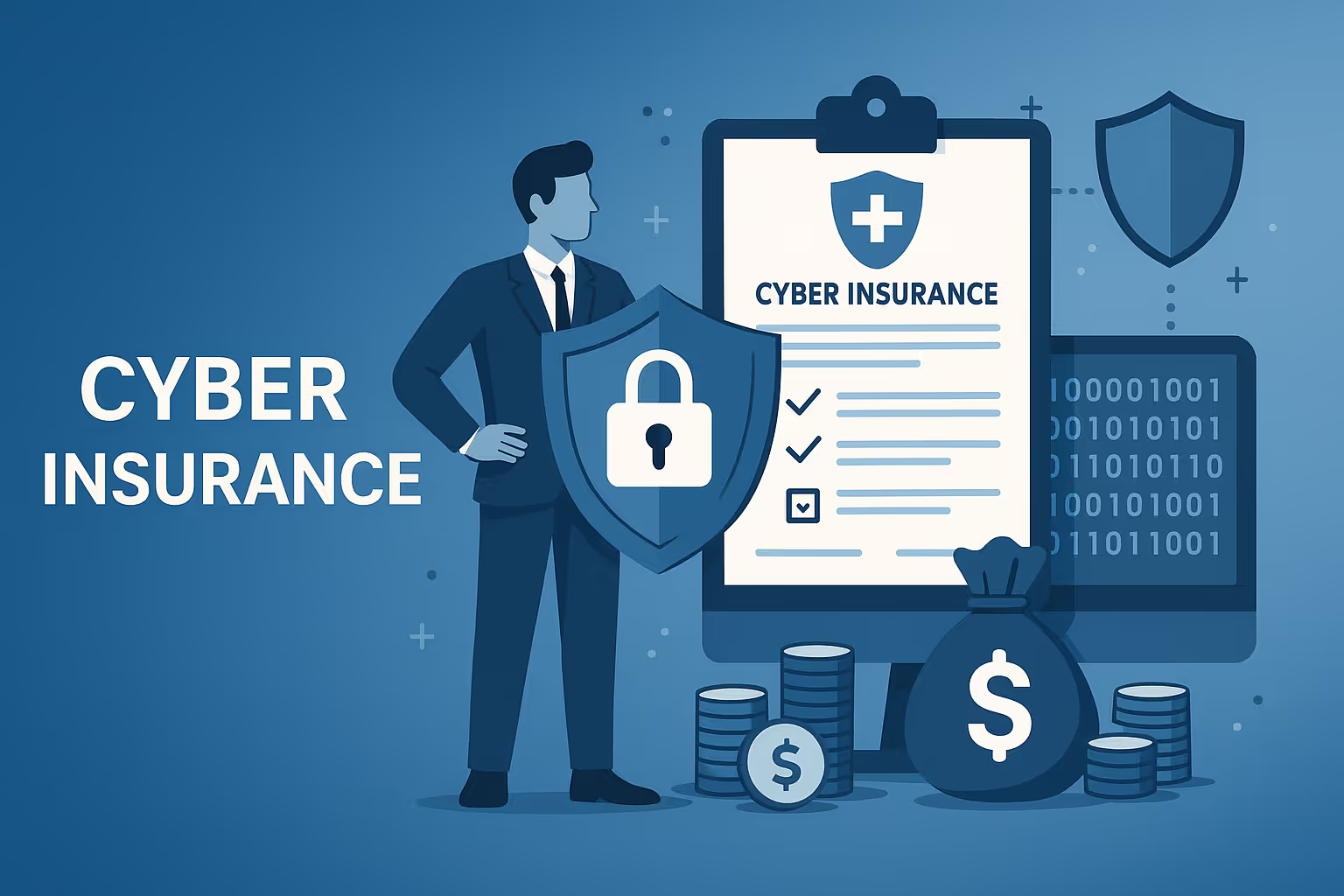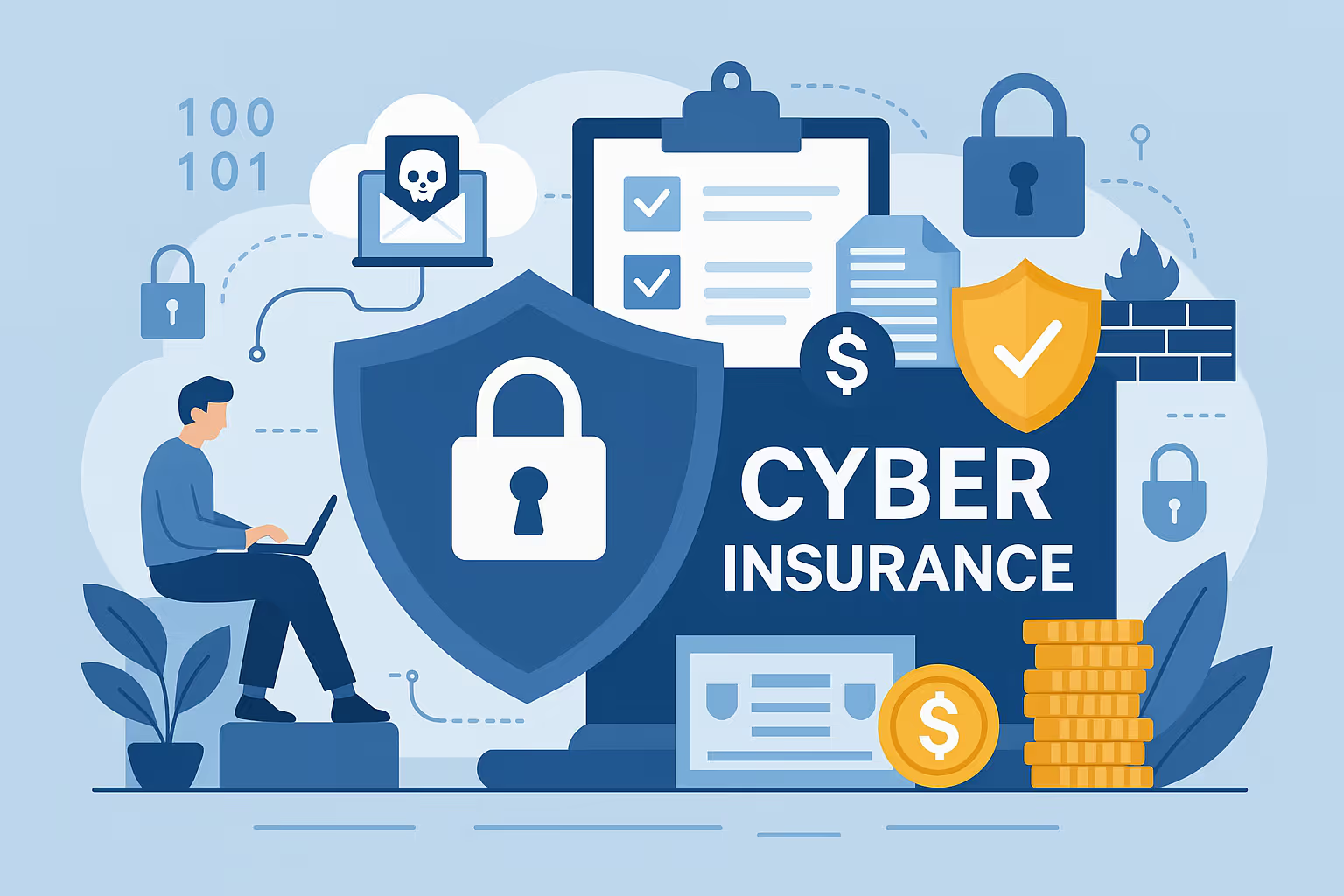
How to get...
For a manufacturing company in the United States, the process to obtain cyber insurance involves a series of clear steps that address industry-specific risks such as production system vulnerabilities and supply chain complexities. Below is a detailed yet straightforward guide to help you secure the right cyber coverage:

Who provides...
When evaluating providers, manufacturers should consider the following key aspects:


Why need...
Cyber insurance for Manufacturing in the United States plays a crucial role by providing financial relief and resources to quickly recover from such incidents. In addition to covering direct losses, this insurance supports costs related to legal defense, regulatory fines, public relations damage control, and business interruption. Acquiring robust cyber insurance for Manufacturing is essential to mitigate these risks, ensuring that companies can rebuild and continue operations even after a major cyber event.
Cyber insurance coverage for Manufacturing includes protections for incidents where sensitive data is compromised, such as intellectual property, proprietary production data, and employee information. This coverage typically covers:
This is vital for U.S. Manufacturing organizations as breaches can expose trade secrets and disrupt supply chains. The coverage ensures operational continuity and enhances financial security by mitigating the high costs of breach remediation and potential reputational damage.
Cyber insurance coverage for Manufacturing includes provisions for business interruption losses caused by cyber incidents. This coverage addresses issues such as:
For manufacturing entities, ensuring minimal interruption in production is crucial. This coverage directly impacts operational resilience and maintains financial stability, safeguarding regulatory compliance regarding delivery schedules and contractual obligations.
Cyber insurance coverage for Manufacturing offers specific protection against cyber extortion and ransomware attacks by covering:
This coverage is critical for U.S. Manufacturing companies whose automated production systems and design files are frequently targeted. It minimizes financial losses and operational downtime from such threats and helps maintain regulatory compliance when safeguarding sensitive production data.
Cyber insurance coverage for Manufacturing often includes protection for regulatory defense and fines linked to cyber incidents. Key components covered are:
For manufacturing companies, adherence to both federal and state regulations is paramount. This coverage helps manage unexpected legal and regulatory expenses, ensuring continued financial security and consistent operations amid evolving cybersecurity legal landscapes.
Build Security with OCD Tech That Meets the Standard — and Moves You Forward
Contact Us
Cyber insurance rules for U.S. manufacturers assess digital defenses. They reduce risks and secure coverage.
Manufacturers must provide clear documentation of cybersecurity policies and risk assessments. This includes written protocols and periodic risk analyses that demonstrate adherence to industry best practices. Insurers use these documents to evaluate how well a company manages its potential cyber threats and vulnerabilities, which in turn impacts premium determination and overall coverage eligibility. This requirement is a key element of cyber insurance requirements for Manufacturing that helps predict future exposure.
Manufacturing companies are expected to implement advanced technical controls such as firewalls, intrusion detection systems, and multi-factor authentication. These controls are crucial to protect operational technology and sensitive data. Insurers assess these measures to understand the risk exposure and potential loss scenarios, which directly affects insurance premiums and coverage limitations. This is a critical part of cyber insurance requirements for Manufacturing.
Providing an established incident response plan with documented recovery procedures is essential. Insurers look for detailed strategies that outline immediate actions, communication plans, and disaster recovery solutions to reduce the impact of cyber events. Effective incident response planning is directly linked to reduced financial risk and influences both eligibility and premium rates under cyber insurance requirements for Manufacturing.
Manufacturing firms should present evidence of compliance with recognized standards such as NIST, ISO 27001, or relevant industry-specific regulations. This compliance evidence reassures insurers of a company’s commitment to maintaining high security standards. Meeting these cyber insurance requirements for Manufacturing can lead to more favorable premium rates and fewer exclusions in the policy.
Manufacturers need to disclose past cybersecurity incidents and results from vulnerability assessments. Insurers review these historical records to gauge the frequency and severity of previous breaches, which influences risk ratings and premium calculations. Transparent reporting aligned with cyber insurance requirements for Manufacturing provides a realistic view of the company’s security posture and guides underwriting decisions.
Secure Your Business with Expert Cybersecurity & Compliance Today
Contact Us


Differences by State...
For companies seeking cyber insurance for Manufacturing in the United States, understanding state-specific regulations is critical. Different states enforce unique laws and requirements that impact coverage options, premiums, compliance, and risk management strategies.
Overall, these variations affect how manufacturing organizations evaluate, purchase, and maintain their cyber insurance policies by:
For manufacturers, staying informed about these state-specific nuances ensures that cyber insurance policies not only protect against contemporary cyber risks but also align with regulatory requirements and market expectations, leading to stronger overall cybersecurity resilience.

Compliance & Frameworks...
In the Manufacturing sector in the United States, companies must address several compliance requirements and frameworks that not only protect their operations but also shape the parameters of cyber insurance policies. These frameworks directly affect underwriting criteria, risk assessments, and ultimately, the premiums for cyber insurance for Manufacturing. Understanding these is essential, even for organizations with minimal cybersecurity background.
By aligning operational practices with these frameworks, manufacturing companies can demonstrate robust cybersecurity governance. This not only minimizes the likelihood of costly breaches but also positions organizations favorably during the underwriting process. Ultimately, consistent compliance directly influences the coverage, conditions, and premium costs associated with cyber insurance for Manufacturing.

Audit. Security. Assurance.
IT Audit | Cybersecurity | IT Assurance | IT Security Consultants – OCD Tech is a technology consulting firm serving the IT security and consulting needs of businesses in Boston (MA), Braintree (MA) and across New England. We primarily serve Fortune 500 companies including auto dealers, financial institutions, higher education, government contractors, and not-for-profit organizations with SOC 2 reporting, CMMC readiness, IT Security Audits, Penetration Testing and Vulnerability Assessments. We also provide dark web monitoring, DFARS compliance, and IT general controls review.
Contact Info
.svg)
OCD Tech
.svg)
25 BHOP, Suite 407, Braintree MA, 02184
.svg)
844-623-8324
.svg)
https://ocd-tech.com
Follow Us
Videos
Check Out the Latest Videos From OCD Tech!
Services
SOC Reporting Services
– SOC 2 ® Readiness Assessment
– SOC 2 ®
– SOC 3 ®
– SOC for Cybersecurity ®
IT Advisory Services
– IT Vulnerability Assessment
– Penetration Testing
– Privileged Access Management
– Social Engineering
– WISP
– General IT Controls Review
IT Government Compliance Services
– CMMC
– DFARS Compliance
– FTC Safeguards vCISO